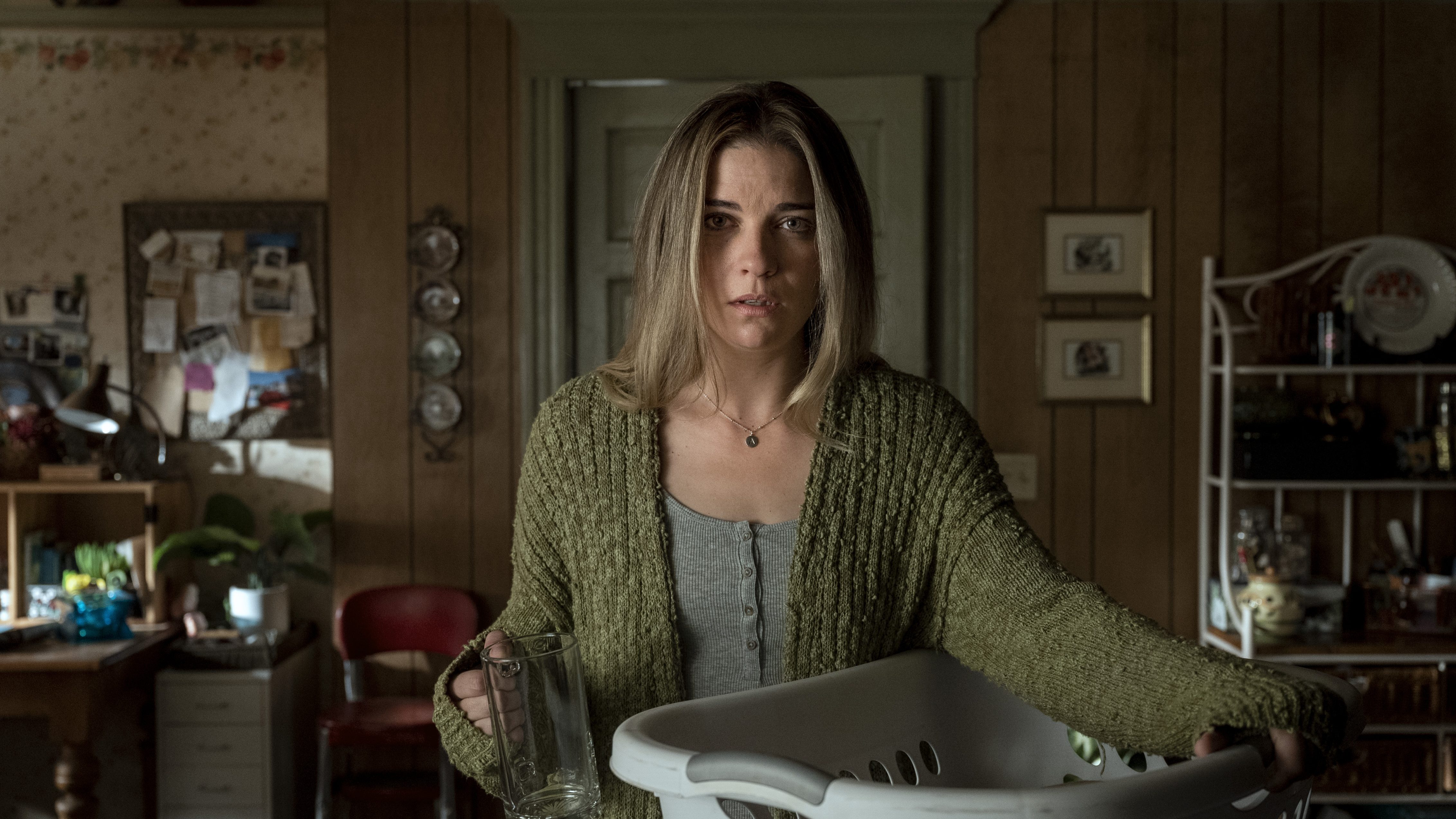

There are two realities in AMC’s Kevin Can F**k Himself: the one Kevin (Eric Petersen) inhabits, that revolves entirely around him, and the one his wife Allison (Annie Murphy) is left with when he leaves the room. The scenes that Allison and the rest of the cast share with Kevin are shot like a multi-camera show: bright lights, broad jokes and a laugh track. His dimwitted shenanigans are just harmless fun with seemingly no consequences. But when Kevin leaves the room, the atmosphere changes dramatically. These scenes are shot single-cam style, like a prestige cable drama, and absent his oblivious, self-involved perspective, we see the world through Allison’s eyes. We see the toll his antics take on her, and it is grim.
The series, which premieres this weekend on AMC+ and will debut later this month on AMC, is a dark satire of the kind of domestic sitcoms that once dominated network television. Creator Valerie Armstrong, who was a writer on the brief, brilliant Lodge 49, has said that she was spurred to create the show in response to shows like CBS’s Kevin Can Wait. On that show, the wife character (Erinn Hayes) was so disposable she was actually killed off and replaced with Leah Remini, whom star Kevin James had previously played opposite on The King of Queens.
A lot has been made of the way Kevin Can F**k Himself satirizes the schlubby-guy-hot-wife trope common on TV. (See everything from James’s oeuvre all the way back to The Honeymooners.) But the show is doing something more interesting with the way it plays with perspective. Kevin’s scenes are played straight in the sense that there’s no ironic distance from the hacky humor. The cast fully commits to the bit. By employing the same visual language and all the usual conventions—harebrained schemes, physical comedy, pithy one-liners locked and loaded and aimed at the cheap seats—of traditional half-hour comedies, the show invites us to let our guard down, to indulge in Kevin’s man-child version of the world, beer-pong, “anniversi-ragers” and all. It is, after all, a kind of TV that’s familiar. We’ve seen it hundreds of times—and thousands more in syndication.
But when we’re left alone with Allison, we’re asked to reconsider what we’ve been watching. What seemed like gags before, have actual repercussions for her. We see how the indignities and disappointments—and I don’t mean her husband’s appearance—she’s forced to endure affect her. And that forces us to think about why we thought it was all so funny.
Murphy, who sparkled as a narcissistic socialite on Schitt’s Creek, infuses Allison with a wounded, at times desperate hopefulness that only underscores how trapped she feels in the life her husband has made for them. When we meet her in the pilot, she’s carrying a plastic laundry basket and trying desperately to protect the one nice thing she owns, a second-hand Pottery Barn coffee table, from Kevin’s carelessness. Arms perpetually crossed, she’s the standard-issue killjoy, thwarting her husband and his friends’ fun by reminding them to use coasters and not destroy everything in their paths.
Of course, comedy relies on the absurd, on the bull in the china shop. The bumbling clown is bound to accumulate some collateral damage by way of his bumbling. But when we see the same scenarios over and over, it’s worth thinking about who gets to be the clown and who has to clean up his messes. On so many network sitcoms, we’ve been encouraged to identify with the oafish husband, while the nagging wife is cast as, if not an antagonist, an obstacle. Kevin Can F**k Himself, on the other hand, asks us to think about whose perspective these stories, these jokes are coming from, and why that perspective is so pervasive on TV. In this way, the show is as much an indictment of the audience as it is of retrograde sitcoms themselves. It confronts us with our complicity in laughing along.
In a later episode, one of Kevin’s classic overreactions results in Allison and neighbor Patty (Mary Hollis Inboden) being pulled over by the cops. Later, Patty is shocked that Kevin would do something so irresponsible. Allison’s response is withering. “You been hangin’ out with him for 10 years,” she says in her Worcester, Mass., accent, reminding Patty of all the ways in which Kevin has made her life difficult. “You just watched him and laughed. Can you just think about that for more than one second?”
She may as well be talking to us.
Patty’s response is devastating: “It seemed harmless.”














